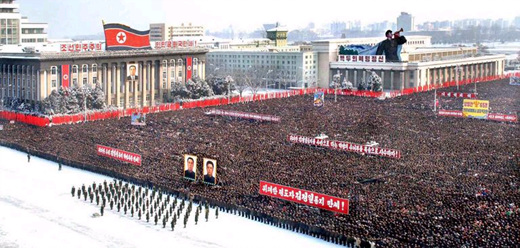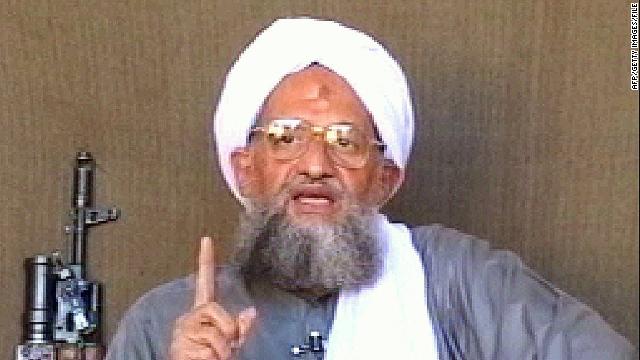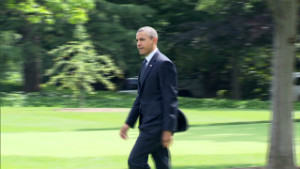"북에 10만달러 이상 부유층 50만명 추산"
장상진 기자
2011.10.07 14:38

북한에서 한국 돈으로 1억2000만원 이상의 자산을 가진 부유층이 50만명이라는 주장이 제기됐다.
국가정보원 산하 국가안보전략연구소의 이인호 수석연구위원은 7일 오전 국회 의원회관에서 자유선진당 박선영 의원과 북한민주화운동본부 주최로 ‘북한 중산층’이란 주제로 열린 포럼에서 “북한에 현금자산이 미화 10만 달러 이상인 부유층이 50만명 규모”라며 “현재 현금자산만 10만 달러 혹은 10만 위안, 북한 돈 2000만원 이상의 소유자를 북한의 부유층으로 분류할 수 있다”고 말했다.
그는 “북한 부유층의 규모는 ‘고위간부와 그 가족 및 친척’ 5만명, ‘해외 장기파견 일꾼과 그 가족·친척’ 10만명, ‘일본·중국·미국과 연계된 북한주민 및 친척’ 10만명, ‘외화벌이 종사자와 그 가족·친척’ 20만명 등 총 50만명가량으로 추산된다”고 말했다.
그러나 이 자리에서 탈북자 출신인 이윤걸 북한전략정보서비스센터 대표는 “북한에서 10만 달러 이상의 재산을 가진 사람들은 최고위급 간부 3000명과 재력가 계층 1000명 등 약 4000명에 불과하다”며 “1만 달러 이하의 재산을 가진 고위급 간부는 2만여명 정도”라고 주장했다.
Source: news.chosun.com
oldmarine
'chosun' 카테고리의 다른 글
| 美 전문가의 한국 대선 전망 (0) | 2012.07.24 |
|---|---|
| 최은희 "저와 김현희는 분단국가 희생양" (0) | 2012.07.20 |
| 韓中連携で日本に大陸棚境界交渉要求を (0) | 2012.07.14 |
| 西海を守る韓国海軍 (0) | 2012.07.14 |
| '대선 출마 선언' 박근혜 "어머니가 흉탄에 돌아가신 뒤 완전히 다른 길을 가야 했다" (0) | 2012.07.10 |
North Korea’s Control of Media Breached by Technology
May 11, 2012 3:58 AM GMT+0900
North Koreans are increasingly able to access global media and other information, loosening the communist regime’s grip on their knowledge and potentially bringing far-reaching changes to the so-called hermit kingdom.
Interviews with refugees, travelers and defectors reveal that North Koreans are using illegal Chinese mobile phones, DVDs, computers and small flash drives to get around official barriers to outside information, according to a report released today.
The interviews, conducted by the Washington-based consulting group InterMedia, show an “extraordinary” broadening of the information environment since the 1990s, said Marcus Noland, a senior fellow at the Peterson Institute for International Economics, a Washington-based policy center.
North Korea has long sealed itself off from the world, with an official state ideology of juche, or self-reliance, and a narrative that pits a resilient regime against a hostile world. That portrayal, and the isolation that has allowed it to flourish, are beginning to crack as new information penetrates the North, InterMedia said.
“Positive perceptions of the outside world can call into question many of the North Korean regime’s most central propaganda narratives, which legitimate the regime by portraying it as the country’s protector from hostile outside forces,” according to the report.
U.S. Funding
Titled “A Quiet Opening: North Koreans in a Changing Media Environment,” the report was funded by the U.S. State Department. “The bottom line of this report is that ultimately North Korea is losing control,” said Abraham Kim, vice president of the Korean Economic Institute, a Washington-based research group. “Losing control of what its people are listening to and seeing, and losing control of how people are thinking about their socioeconomic position, the regime and the outside world.”
Dan Baer, a deputy assistant secretary at the State Department, said that his agency wanted to use the report’s findings to “develop new, creative ways to support” ordinary North Koreans “and enhance their access to information.” He said he hoped the findings would also provide non-governmental groups working on North Korea with new ideas.
Radio’s Reach
Perhaps the most important tool for cracking the regime’s hermetic shell is radio, with its broadcasts of real-time outside news, said Martyn Williams, the blogger behind NorthKoreaTech.org, at a panel discussion of the report. He recounted meeting a former North Korean soldier whose eventual decision to defect arose after he stumbled onto a Voice of America broadcast.
“When he found out that he could fiddle with radios to pick up broadcasts from other countries, he started listening to VOA, Radio Free Asia,” and South Korean radio, Williams said. “That helped educate him and ultimately helped motivate him to escape from his world.”
The report said that the changes taking place in North Korea so far are “very small” and there is little hope for any near-term grassroots “pushback” against the regime headed by Kim Jong Un, grandson of state founder Kim Il Sung. Still, the developments “are illustrative of a potential long-term trajectory for change,” the report found.
Growing media use “is not just an elite story or just a youth story,” said Noland, who blogs about North Korea. “Middle-aged people were even more intense consumers,” he said today at the panel presentation.
Government Gaps
As appetites grow for foreign media, there appear to be gaps in the government’s ability to block it, said Williams. He said that from mid- to late February, there were “entire days” when North Korea stopped jamming signals of incoming radio broadcasts.
Because the government usually blocks signals of about a dozen channels for as much as 18 hours a day, analysts suspect either electricity shortages or technical problems allowed the signals through, Williams said.
The report’s conclusions come as Kim Jong Un, who succeeded his late father in December, called for harnessing the Internet to collect technology from abroad.
“We must use the Internet to find more data on international trends and advanced science and technology from other countries,” Kim said, according to a segment on North Korea state television broadcast May 8.
Unauthorized accessing of foreign media by North Koreans is illegal, and harsh punishments are meted out for those caught doing so, the report’s authors said. Even so, InterMedia said, breaking those laws seems to be more “normalized.”
‘Nascent Seeds’ of Change
The report also found “the increase in media access has been accompanied by an increasing willingness among North Koreans to share information with those they trust.”
Bonds created by shared prohibited behavior are a breeding ground for ideas that go beyond -- or even run counter to -- the regime’s version of reality. “In these most nascent seeds of civil society lies the potential for continued change on the ground level in the lives of ordinary North Koreans,” the authors said.
The elites have the greatest exposure to outside media, with computers, USB drives and illegal Chinese mobile phones entering the country in substantial numbers, according to the report. The study identified DVDs as the most commonly accessed form of outside media. DVDs of South Korean films show the South’s prosperity and quality of life.
Human Rights Record
The increased media penetration may explain why the normally secretive leadership chose to invite foreign media to watch its April 12 missile launch and then, after it disintegrated over the Yellow Sea, admitted the failure publicly.
Those living along the militarized Chinese and South Korean borders are also able to access foreign television shows. There is no satellite penetration of North Korea, said Nathaniel Kretchun, who authored the report with Jane Kim.
North Korea, one of the world’s most militarized countries, is consistently ranked by groups such as Freedom House, Reporters Without Borders and Amnesty International as having the worst human rights record and least free media in the world.
Source: bloomberg.com
oldmarine
'News' 카테고리의 다른 글
| North Korea Agrees to Halt Nuclear Tests, Missile Launches (0) | 2012.07.14 |
|---|---|
| 김경아, 여성스포츠대상 6월 MVP 선정 (0) | 2012.07.14 |
| And now, only one senior al Qaeda leader left (0) | 2012.07.13 |
| For China, It’s All About America (0) | 2012.07.11 |
| [Korea] Preparation for EXPO 2012 Yeosu Korea in Full Swing! (0) | 2012.07.11 |

- Al Qaeda's number two leader was killed in a CIA drone strike
- Peter Bergen says it shows that the terrorist organization is effectively out of business
- He says the only senior leader left is Ayman al-Zawahiri, the successor to bin Laden
- Bergen: Fearing present day al Qaeda is more irrational than fearing a lightning strike
Editor's note: Peter Bergen, CNN national security analyst, is the author of "Manhunt: The Ten-Year Search for bin Laden, From 9/11 to Abbottabad."
Washington (CNN) -- The news that Abu Yahya al-Libi, the No.2 leader of al Qaeda, is now confirmed to have been killed in a CIA drone strike in Pakistan's tribal region along the border with Afghanistan further underlines that the terrorist group that launched the 9/11 attacks is now more or less out of business.
Under President Barack Obama, CIA drone strikes have killed 15 of the most important players in al Qaeda, according to a count maintained by the New America Foundation (a nonpartisan think tank where I am a director).
Similarly, President George W. Bush also authorized drone strikes that killed 16 important al Qaeda operatives in Pakistan while he was in office.

As a result, according to senior U.S. counterterrorism officials, there now remains only one leader of any consequence in al Qaeda and that is Ayman al-Zawahiri, the tetchy Egyptian surgeon who became the head of the group following the death of its founder, Osama bin Laden, in a U.S. Navy SEAL raid in Pakistan in May 2011.
Zawahiri, presumably, is keenly aware of the fate of so many of his longtime colleagues in al Qaeda. He will be expending considerable energy not to end up on the business end of a missile fired by a CIA drone if he, too, is hiding in the Pakistani tribal regions where the drone strikes have been concentrated.
Meanwhile, Zawahiri faces an almost impossible task to follow through on al Qaeda's main mission: attacking the United States, or failing that, one of its close allies.
Al Qaeda hasn't conducted a successful attack in the West since the bombings on London's transportation system on July 7, 2005, and of course, the group hasn't succeeded in attacking the United States for more than a decade.
There are, however, al Qaeda's regional affiliates still to contend with. The most virulent of those is the Yemen-based Al Qaeda in the Arabian Peninsula. It was AQAP that tried to bring down Northwest Flight 253 over Detroit on Christmas Day 2009 using a Nigerian recruit who had secreted a hard-to-detect bomb in his underwear, and it was AQAP that smuggled bombs in printer cartridges onto cargo planes bound for the U.S. in October 2010.
Last month came news that a spy had penetrated AQAP and had retrieved a new generation of underwear bomb that the group's bomb maker had apparently recently designed to bring down a commercial jet. But all of AQAP's plots to bring down planes have had one thing in common: They failed.
Some might say that that while al Qaeda the organization may be basically dead, its ideology continues to thrive and to inspire "lone wolves" to attack the United States.
In fact, lone wolves inspired by jihadist ideology have managed to kill a total of 17 Americans in the United States since 9/11, according to a tally maintained by the New America Foundation.
Meanwhile, 54 Americans are reported to be killed every year by lightning, according to the National Weather Service. In other words, to the average American, lightning is about 30 times more deadly than jihadist terrorism.
Few Americans harbor irrational fears about being killed by a lightning bolt. Abu Yahya al-Libi's death on Monday should remind them that fear of al Qaeda in its present state is even more irrational.
Source: edition.cnn.com
oldmarine
'News' 카테고리의 다른 글
| 김경아, 여성스포츠대상 6월 MVP 선정 (0) | 2012.07.14 |
|---|---|
| North Korea’s Control of Media Breached by Technology (0) | 2012.07.13 |
| For China, It’s All About America (0) | 2012.07.11 |
| [Korea] Preparation for EXPO 2012 Yeosu Korea in Full Swing! (0) | 2012.07.11 |
| 박근혜 죽이려고 박정희 또 죽이나 (0) | 2012.07.10 |






